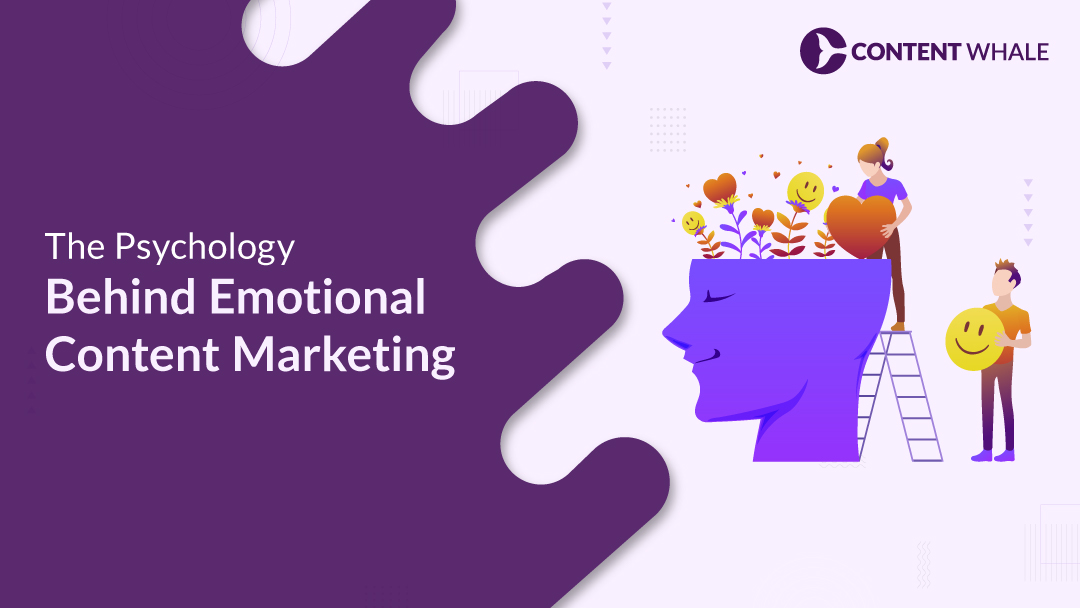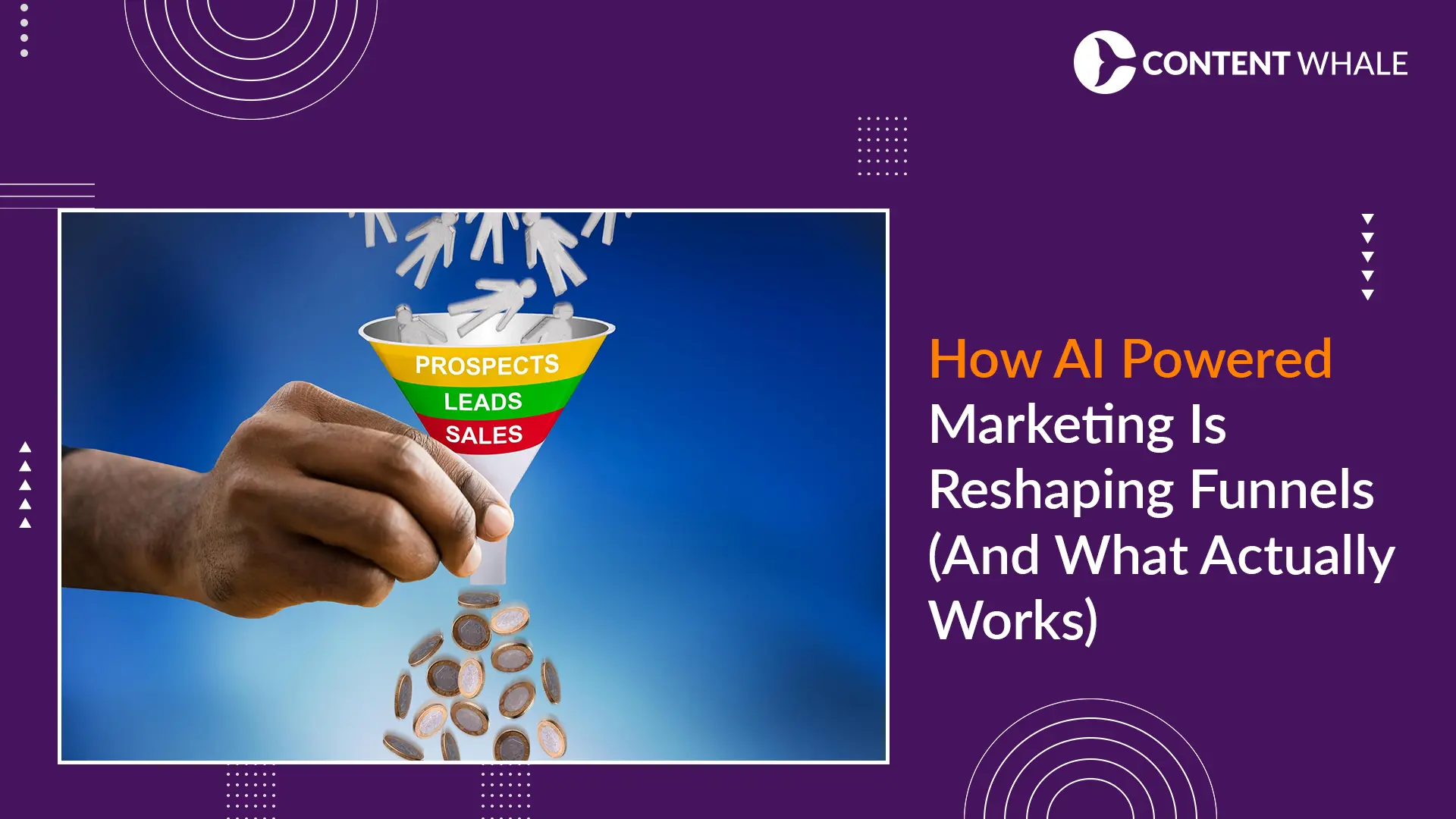Quick Summary
Emotional content marketing enhances brand engagement by tapping into human emotions, fostering deep connections with audiences. This blog delves into the psychology that makes emotional content effective, emphasizing strategies like storytelling, personalization, and impactful visuals to boost user engagement. By integrating psychological marketing techniques, brands can significantly influence consumer behavior, leading to increased loyalty and business success. This summary highlights the critical role of emotions in marketing and provides actionable insights for creating resonantly emotional content.
Emotions shape our perceptions, decisions, and interactions. Recognizing this emotional influence is fundamental in content marketing. By using emotional content marketing, brands can connect with their audiences on a deeper, more personal level. This approach not only attracts attention but significantly enhances user engagement and fosters loyalty.
Understanding and applying psychological marketing techniques allows marketers to craft messages that resonate deeply with consumers’ feelings and values. Such strategies are not about manipulation but about creating content that genuinely reflects the audience’s emotional realities and needs.
As we explore how to implement these powerful tools, we’ll see how they transform audience interactions into meaningful relationships and drive successful marketing outcomes.
The Importance of Emotions in Content Marketing

The importance of emotions in content marketing is underscored by the fact that emotional connections between brands and consumers can significantly enhance engagement and influence purchasing decisions.
Emotionally charged marketing content tends to foster stronger, more enduring relationships with audiences, leading to higher rates of content sharing and better recall of marketed messages.
Research highlights that ads with a strong emotional pull can generate a 23% increase in sales volume, illustrating that emotions are a critical driver of consumer response.
Additionally, emotional engagement is pivotal in determining the effectiveness of marketing campaigns. A study showed that campaigns with purely emotional content performed nearly twice as well as those that relied solely on rational content.
Furthermore, the rapid processing of emotional content by the brain — about five times faster than cognitive processing — is particularly crucial in today’s fast-paced media environment.
This rapid engagement means that emotionally resonant messages can capture and hold consumer attention more effectively than non-emotional messages.
Overall, integrating emotional elements into content marketing strategies not only boosts user engagement but also enhances customer loyalty, making it a valuable approach for brands aiming to connect more deeply with their audiences.
Case Studies of Emotional Content Marketing Success

Here are some compelling real-life case studies that demonstrate the effectiveness of emotional content marketing:
1. Always #LikeAGirl Campaign:
Always turned the phrase “like a girl” from an insult into a powerful message about empowerment. The campaign featured videos that showcased girls and women excelling in sports and other activities, challenging stereotypes and positively shifting public perception.
This initiative not only went viral but also significantly boosted the brand’s image and connection with its audience.
2. Gillette’s “Perfect Isn’t Pretty” Campaign:
During the Rio Olympics, Gillette launched a campaign showcasing the hardships and sacrifices behind Olympic-level athleticism.
By focusing on athletes’ emotional journeys, the campaign resonated deeply with viewers, enhancing their association of Gillette with qualities like dedication and resilience.
3. P&G “Thank You, Mom – Strong”:
Procter & Gamble released a campaign that highlighted the crucial role of mothers in athletes’ lives, tying it to the Rio Olympics.
The ads portrayed the emotional support and strength mothers provide, reinforcing P&G’s image as a brand that honours family and resilience.
These campaigns leveraged emotions ranging from pride and joy to empathy and determination, enhancing customer engagement and brand loyalty through deeply relatable narratives.
The Psychological Impact of Emotional Marketing on User Engagement

1. Emotional Triggers in Advertising
Emotional marketing taps into fundamental human behaviours and emotions, significantly influencing consumer decision-making processes. Studies show that emotional responses to advertisements can pre-determine their effectiveness even before the conscious mind processes the content.
This is due to specific brain areas, like the inferior frontal gyrus, which is associated with pleasure, and the ventral striatum, crucial in the brain’s reward system, reinforcing the appeal of products or services through positive emotions.
2. Enhancing User Engagement Through Emotional Alignment
By aligning marketing messages with the emotional states that drive consumer actions, emotional marketing enhances user engagement. This alignment ensures that marketing strategies not only capture attention but also foster deeper connections with consumers.
Implementing emotional triggers effectively increases the perceived value of offerings, which can lead to higher conversion rates and stronger customer loyalty.
3. Emotional Contagion and Consumer Interaction
The research underscores the significance of emotional contagion in marketing, where emotions from one individual can induce similar emotions in another, thereby influencing consumer behaviour.
This phenomenon highlights how positive or negative emotions can converge into corresponding consumer behaviours, emphasizing the importance of managing emotional expressions in marketing interactions to foster positive customer relationships.
4. Emotional Marketing and CSR
Incorporating Corporate Social Responsibility (CSR) into emotional marketing strategies can significantly enhance brand perception.
CSR activities, framed within emotional marketing, often generate emotions such as gratitude and identity among consumers, which can strengthen brand loyalty and influence consumer behavior positively.
This connection underscores the need for brands to align their CSR initiatives with emotional marketing strategies to maximize impact.
These insights are crucial for marketers aiming to leverage emotions effectively within their strategies to drive consumer engagement and loyalty. For further exploration of these topics, the detailed studies provide extensive discussions on how emotional dynamics influence consumer interactions and decision-making processes.
Strategies to Create Emotionally Engaging Content

To create emotionally engaging content that resonates with your audience, consider employing a variety of strategies:
1. Storytelling
Develop compelling narratives that connect on a deep emotional level. This involves understanding your audience’s emotions, values, and experiences to craft stories that are both relatable and resonant.
Storytelling is not just about telling your brand’s story but also intertwining your audience’s emotional desires and needs into the narrative.
2. Visuals and Multimedia
Leverage the power of visuals to enhance the emotional impact of your content. Utilize images, videos, and infographics that evoke the desired emotional response.
Visual elements can convey complex emotions quickly and effectively, enhancing the overall engagement and relatability of your content.
3. Personalisation
Customize your content to reflect the individual preferences, past behaviors, and interests of your audience. This personal touch not only increases relevance but also strengthens the emotional connection, making your content more engaging and memorable.
4. Authenticity
Ensure that your content is genuine and authentic. This means being true to your brand’s values and voice throughout your content. Authenticity fosters trust and reliability, encouraging a deeper emotional bond with your audience.
5. Call to Action
Incorporate emotionally charged calls to action that motivate your audience to engage further with your brand. Whether it’s inspiring them to make a change, encouraging participation, or prompting a purchase, effective CTAs should align with the emotional tone of the content and offer clear value.
6. Emotional Design and User Experience
Implement design elements that evoke specific emotions. This includes using colors, fonts, and layout strategically to influence how your audience feels about the content they are interacting with.
For example, using warm colours can evoke feelings of happiness and comfort, which can be particularly effective in campaigns aiming to create a positive and uplifting mood
7. Emotional Triggers
Utilize emotional triggers wisely to enhance engagement without overwhelming your audience. Strike a balance between emotional appeal and factual accuracy, ensuring that your content remains genuine and authentic.
This helps in avoiding the pitfall of emotional overload, which can disengage your audience if every piece of content is intensely emotional
8. Aspirational Messages
Inspire your audience by incorporating aspirational messages into your content. These messages should tap into your audience’s dreams and goals, evoking emotions such as hope and excitement.
This can be particularly powerful for brands that aim to uplift or motivate their audience.
Each of these strategies requires a deep understanding of your audience to be effective. Implementing them thoughtfully will help you create content that not only captures attention but also fosters a genuine emotional connection with your audience.

This discussion underscores the transformative impact of emotional content marketing on building lasting relationships and enhancing user engagement, thereby driving business success.
By weaving emotions into marketing strategies, brands not only capture attention but also foster loyalty and preference over competitors. Embracing psychological marketing equips brands to continuously innovate and connect with their audience on a deeper human level.
Partnering with Content Whale can amplify these efforts, as our expertise in crafting emotionally resonant and impactful narratives ensures that your marketing not only reaches but profoundly resonates with your target audience, creating meaningful and effective engagement.
FAQ
What is Emotional Content Marketing?
Emotional content marketing involves creating content that taps into the emotions of the audience to foster engagement and loyalty. This strategy enhances the emotional connection between the brand and its customers, making marketing efforts more impactful.
How Does Emotional Marketing Affect User Engagement?
Emotional marketing significantly boosts user and engagement by creating content that resonates deeply with the audience’s feelings. This leads to increased shares, likes, and overall interaction with the brand’s content.
Examples of Successful Emotional Marketing Campaigns
Many brands have effectively leveraged emotional content marketing, using compelling stories and strong visuals to engage their audience emotionally, resulting in increased brand loyalty and consumer action.
Creating Emotionally Engaging Content for Your Brand
To create content that emotionally engages, focus on understanding your audience’s emotional triggers and crafting messages that speak directly to these sentiments. Personalization and authenticity are key components in making content relatable and trustworthy.
Importance of Personalization in Emotional Content Marketing
Personalization in emotional content marketing is critical as it ensures that the content resonates with individuals on a personal level and addresses their specific needs and preferences, enhancing the overall impact of the marketing efforts.
By addressing these frequently asked questions, brands can better understand the nuances of emotional content marketing and psychological marketing, allowing them to craft more targeted and effective marketing strategies.





